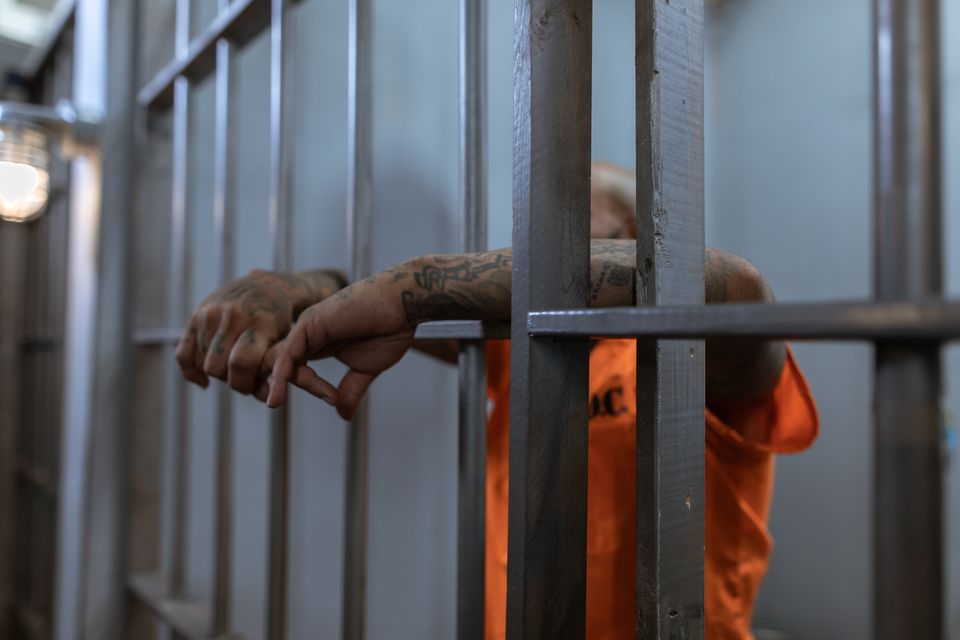Inmates Have One Horrific Thing In Common

As a Forensic Psychologist, it is my job to assess inmates and try to discover what makes them 'tick'. Throughout my career, I have interviewed hundreds of prisoners. Their crimes ranged from more petty (destruction of property, theft) to more severe (mass murder and rape). No matter why they ended up behind bars, my job remains the same: unlock the mystery of why they act out criminally.
Although each client is unique, I couldn't help noticing a striking common characteristic. They had all experienced a traumatic childhood or an Adverse Childhood Experience (ACEs).
According to the CDC, around 60% of adults have at least one traumatic childhood experience, compared to 97% of inmates. Those behind bars have, on average, at least five traumatic childhood experiences.
People with 4 or more ACEs are:
-14x more likely to have been the victim of violence in the last year
- 15x more likely to have been the perpetrator of violence in the last year
- 20x more likely to have been incarcerated in their lives
Curious about whether you have experienced an Adverse Childhood Experience? In the quiz below, note your response from before you turned 18 years old.
1. Did a parent or other adult in the household often or very often swear, insult, or humiliate you? Did they ever act in a way that made you afraid that you might be physically hurt?
2. Did a parent or other adult in the household often or very often push, grab, slap, or throw something at you? Did they ever hit you so hard that it left a mark or injured you?
3. Did an adult or person at least five years older than you ever touch, fondle, or have you touch their body sexually? Or attempt or actually have oral, anal, or vaginal intercourse with you?
4. Did you often or very often feel that no one in your family loved you or thought you were important or special? Or that your family didn't look out for each other, feel close to each other, or support each other?
5. Did you often or very often feel like you didn't have enough to eat, had to wear dirty clothes, and had no one to protect you? Were your parents too drunk or high to take care of you or take you to the doctor if you needed it?
6. Did you lose a biological parent through divorce, abandonment, or any other reason?
7. Was your mother or stepmother pushed, grabbed, slapped, or had something thrown at her often or very often? Was she sometimes or often kicked, bitten, hit with a fist, or hit with something hard? Was she ever repeatedly hit over at least a few minutes or threatened with a gun or knife?
8. Did you live with anyone who was a problem drinker or alcoholic, or who used street drugs?
9. Was a household member depressed or mentally ill, or did a household member attempt suicide?
10. Did a household member go to prison?
If you answered yes to any of the above: Congratulations! You are now a member of one of the depressing clubs: Adverse Childhood Experience Group. What does this membership offer? Behavioral problems, physical health problems, and mental health issues.

Not all people with multiple ACEs become victims or perpetrators of violence in adulthood. People with multiple ACEs are more likely to become victims or perpetrators of violence in adulthood when compared to people with lower or no ACEs. Having positive early childhood experiences and a positive adult role model can protect against the effects of trauma.
One stable, committed relationship with a supportive parent, caregiver, or other adult is the most common protective factor for building resilience.
When I started my career in Forensic Psychology, I thought that most inmates would be psychopaths. I believed it was their lack of empathy that contributed to criminal behavior. While this is sometimes the case, it is far more likely the strong history of ACEs. This may affect their empathy and emotional regulation skills. If they had little or no positive childhood experiences or no supportive adults in their lives, they would likely lack resilience.
The effects of an abusive childhood are complex and long-lasting. By understanding and acknowledging the impact of ACEs, we can have a more empathetic view of rehabilitation. To reduce criminal behavior, it is crucial that children receive support from adults in their lives. Ensuring that children are well cared for and nurtured creates pro-social adults with resilience. This resilience is the key to breaking the cycle of abuse.
If you like this content, subscribe and follow.




